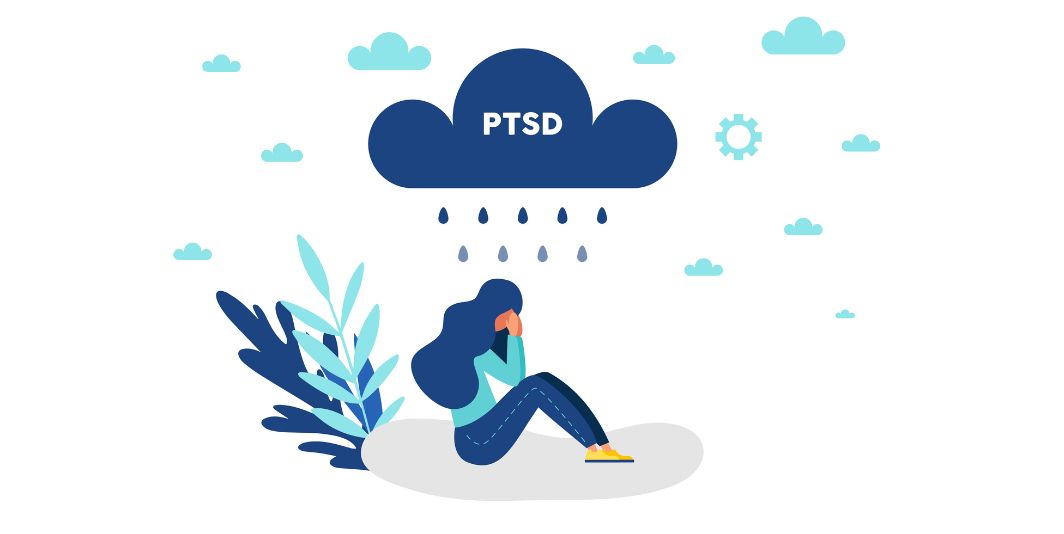PTSD Can Happen to Anyone – Here’s Why
- Category: LiveSmart
- Posted On:
- Written By: Baldwin
Many traumatic events can cause PTSD. Here's what to do if you think you have the condition.
Almost everyone experiences some type of traumatic event in their lives and there are lots of variables that determine how a person reacts to trauma, both in the moment and after the event is over. Some people experience post-traumatic stress disorder or PTSD, especially if the trauma is shocking, dangerous or life-threatening.
Misconceptions about PTSD
PTSD is a mental health disorder that many people have misconceptions about. Some think the only people who get this condition are soldiers, people in war zones or those whose lives have been threatened in some terrifying way. However, many people experience events that can trigger PTSD.
You may develop this condition if you have experienced some type of personal assault, sexual violence, traumatic accident, dangerous event, serious illness, natural disaster or situation that makes you feel like your life is in danger. Witnessing someone else experiencing a trauma can also trigger PTSD.
Differences in How PTSD Affects People
Not everyone who experiences a traumatic event will develop PTSD – and not everyone will react to traumatic events in the same way. Two people experiencing the same event may have two different outcomes – one may develop PTSD while the other one does not develop the condition.
Your risk of developing PTSD may vary due to these factors:
- Women are more likely to experience PTSD than men. Gender identity may also affect your risk.
- Veterans are more likely to have PTSD than civilians. Those who deploy are even more at risk.
- Experiencing trauma early in life may increase your chance of developing PTSD.
- Having little or no social support can increase your risk of PTSD.
- Experiencing additional stress after a traumatic event, such as pain, injury or the loss of a job, home or loved one can increase PTSD risk.
- A personal or family history of mental illness or substance use may increase the likelihood of developing PTSD.
Symptoms of PTSD
Symptoms of PTSD may start immediately after a traumatic event or they may not appear until years later. When symptoms occur, they typically have a major impact on a person's social, personal and work relationships and can interfere with daily living. Symptoms can vary from person to person and can be different for the same person over time. Common symptoms include:
- Having recurrent and distressing memories of the traumatic event, including flashbacks and nightmares
- Being easily frightened or always being on alert for danger
- Experiencing extreme reactions to things that remind you of the traumatic event
- Avoiding anything that reminds you of the traumatic event
- Having overwhelming guilt or shame
- Having trouble sleeping, concentrating or remembering
- Being irritable, angry or aggressive
- Feeling hopeless, detached, negative, sad or numb
- Engaging in self-destructive behavior
Getting Help for PTSD
If you experience PTSD after a trauma, it doesn't mean you'll have the condition for life. There are effective treatments that help people work through symptoms and manage the condition. Treatments may include psychotherapy, medications or a combination of the two. If you think you have PTSD, help is available. Talk to a licensed mental health professional or ask your health care provider for a referral.
For more LiveSmart articles, visit www.McKenzieHealth.org/LiveSmart.
Copyright 2024 © Baldwin Publishing, Inc. Health eCooks® is a registered trademark of Baldwin Publishing, Inc. Cook eKitchen™ is a designated trademark of Baldwin Publishing, Inc. Any duplication or distribution of the information contained herein without the express approval of Baldwin Publishing, Inc. is strictly prohibited.
Date Last Reviewed: April 19, 2024
Editorial Review: Andrea Cohen, Editorial Director, Baldwin Publishing, Inc. Contact Editor
Medical Review: Perry Pitkow, MD
Learn more about Baldwin Publishing Inc. editorial policy, privacy policy, ADA compliance and sponsorship policy.
No information provided by Baldwin Publishing, Inc. in any article is a substitute for medical advice or treatment for any medical condition. Baldwin Publishing, Inc. strongly suggests that you use this information in consultation with your doctor or other health professional. Use or viewing of any Baldwin Publishing, Inc. article signifies your understanding and agreement to the disclaimer and acceptance of these terms of use.
